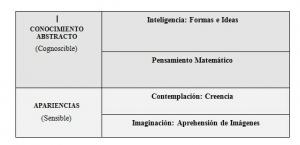How to improve my self-esteem: the importance of internal dialogues
The vision we have of ourselves interferes with everything we do and what we don't and is decisive in our human development.. There are many ways to strengthen your self-esteem and improve what you think of yourself, how much you trust, and like yourself. Today I want to share with you an effective tool, so that you can put it into daily practice, and work on your thoughts, which are the language of the mind.
Words generate emotions. We don't feel the same when someone says something nice to us or when they say something ugly to us. This is based on the fact that words generate thoughts, and thoughts generate emotions. People tend to think the same things every day, we automate ways of speaking them, we automate things we focus on and that leads us to always make the same decisions and have the same feelings. Over time, what we do automatically forms our personality.
We all consciously or unconsciously have a style when it comes to directing ourselves that we built during our lives. In general, the way we talk to ourselves is very different from the way we talk to a friend or loved one.
Why is it that in internal dialogue we say things that we would never say to someone we love?A clear example of this is when, for example, we decide to diet and find it difficult to sustain the change. In the situation of not achieving a result, we label ourselves negatively or we have a response where we only stick to what has not been done without giving merit to the rest.
How can I work on my internal dialogues to strengthen my self-esteem?
I propose that you know how to generate flexibility in your thoughts, through your conscious decision and thus be able to strengthen your bond with yourself.
1. First step
We must learn to recognize what our internal dialogues tend to be like in different situations in life.
- Write down what things you usually say to yourself when you give yourself courage in the face of a challenge. Ex.: If I make an effort I can achieve it, even if it is not easy I can give my best, etc.
- Then he makes a list of what your dialogues are like when you feel discouraged about the challenge you face. Ex.: I will never be able to, I am useless, etc.
2. Second step
We are going to classify how the dialogues in each case usually are.
- Are they rigid or flexible thoughts?
- Do you disqualify the positive and focus only on the negative?
- Do you oversize things?
- Does it anticipate catastrophes or does it allow you to test yourself?
- Are they rational or irrational?

From my work in the clinic, I have noticed that people when they are encouraged are more objective than when they feel discouraged. It is not that when they encourage themselves they are only positive and deny the negative, however, they can have a broader view of the entire situation based on reality. Talking to ourselves in a more rational way allows each person to become more aware of their coping capacity, facilitating the achievement of objectives.
On the other hand, when thoughts are more dysphoric, people tend to talk to themselves dichotomously, that is, they use words like: everything, always, never, etc. As a result, he has an incompetent view of himself and a more rigid thinking style. Having a look like this makes it difficult to achieve goals and directly affects what we believe about ourselves.
3. Third step
Once you have qualified the experience, the idea is to use this information to integrate your experience so that your thoughts, emotions and feelings are coherent. Recognize and change irrational dialogues to achieve appropriate behaviors and emotions.
Now that you can perceive them, you have the opportunity to consciously change the connections automatic feelings that you assumed when speaking to yourself and having a style of dialogue that leads you to the self-esteem that you would like to have. The more you practice this part, new neural connections are generated, which will lead you to new habits and new results.
To consolidate this work, I propose that every night, for a week, you take a pen and paper and record the answer to the following questions on a daily basis.
- What did you do well today?
- What could I do better?
- What small step could I take tomorrow to be the best version of myself?
To change we need to look at ourselves and think about ourselves. Let's do it!

